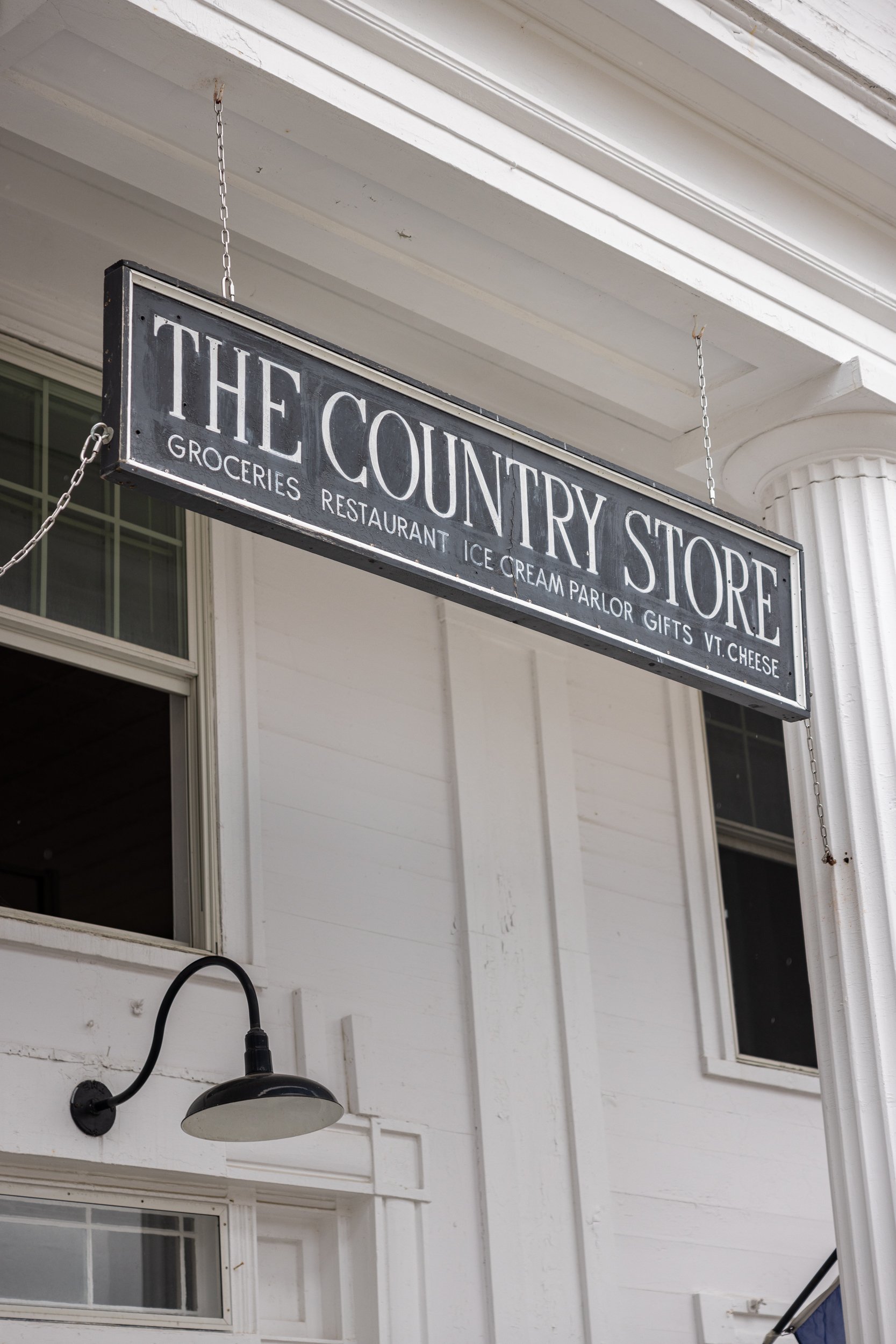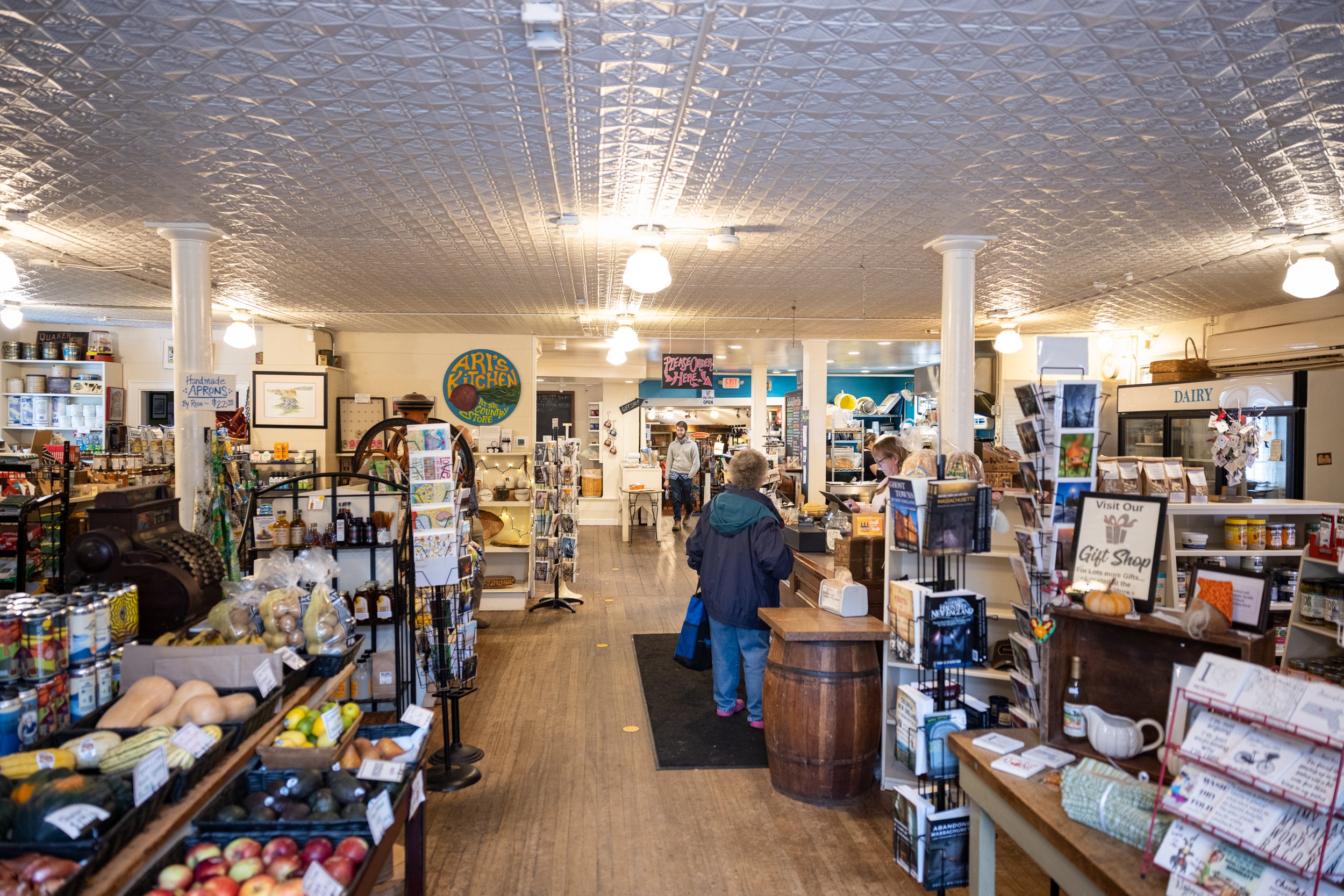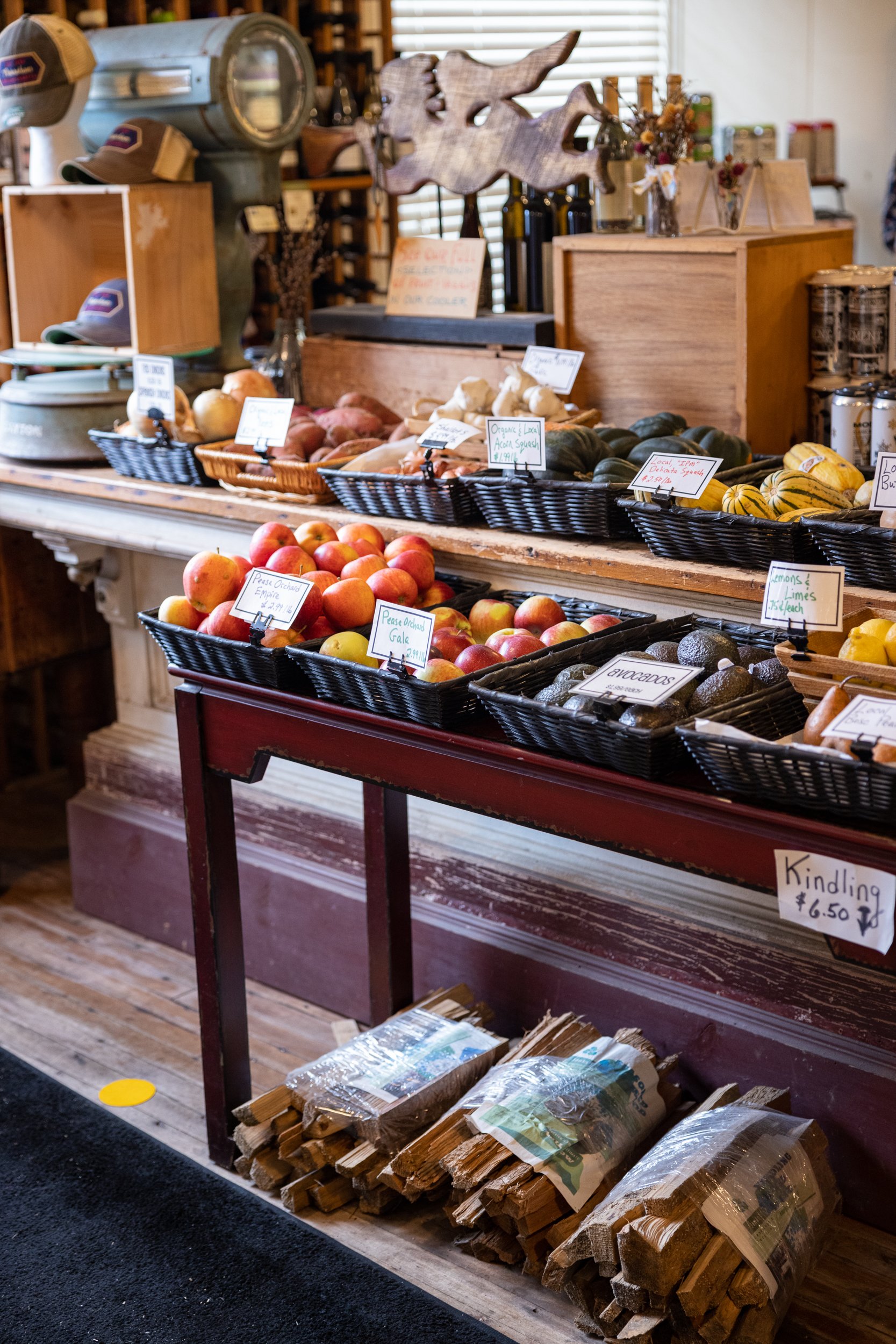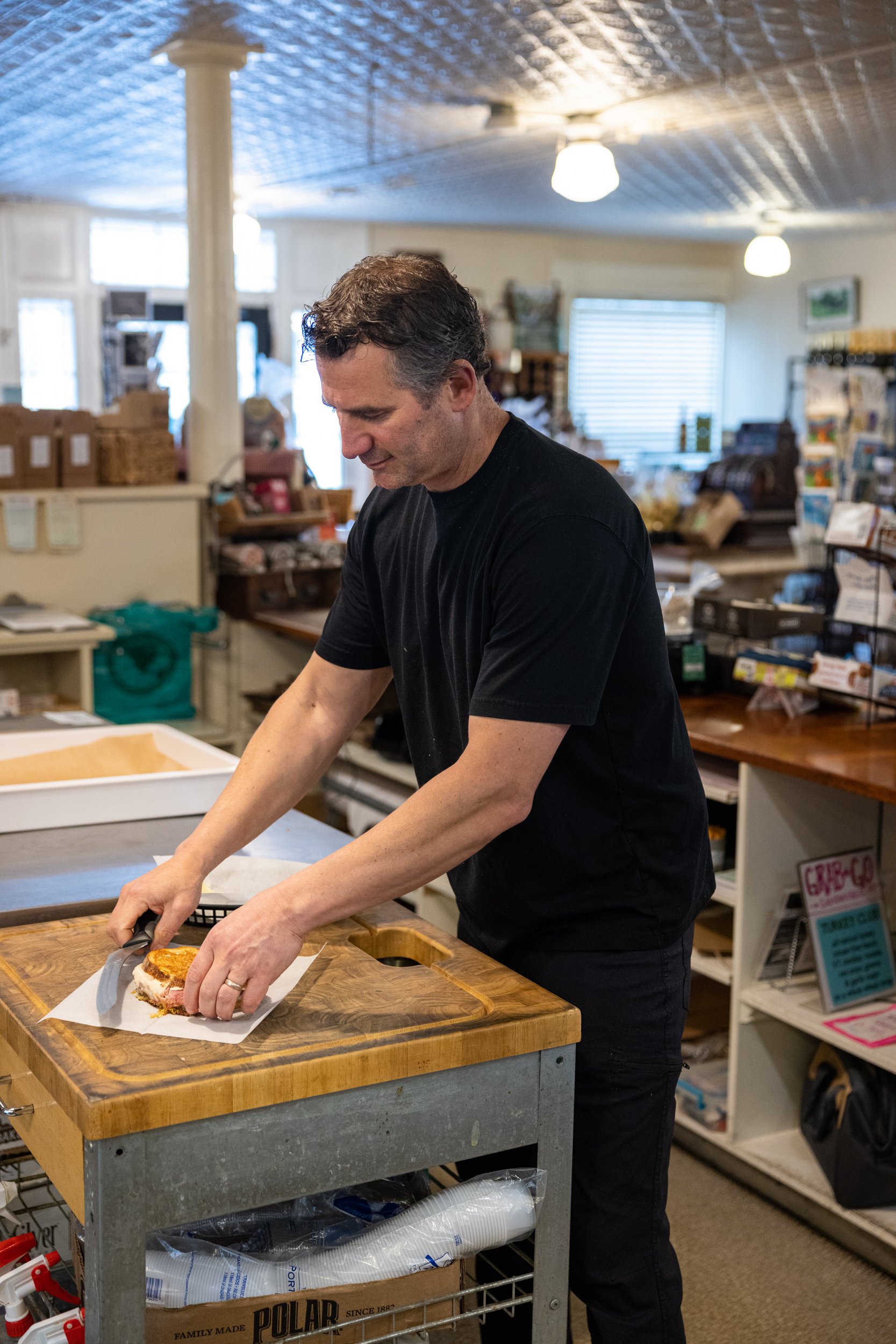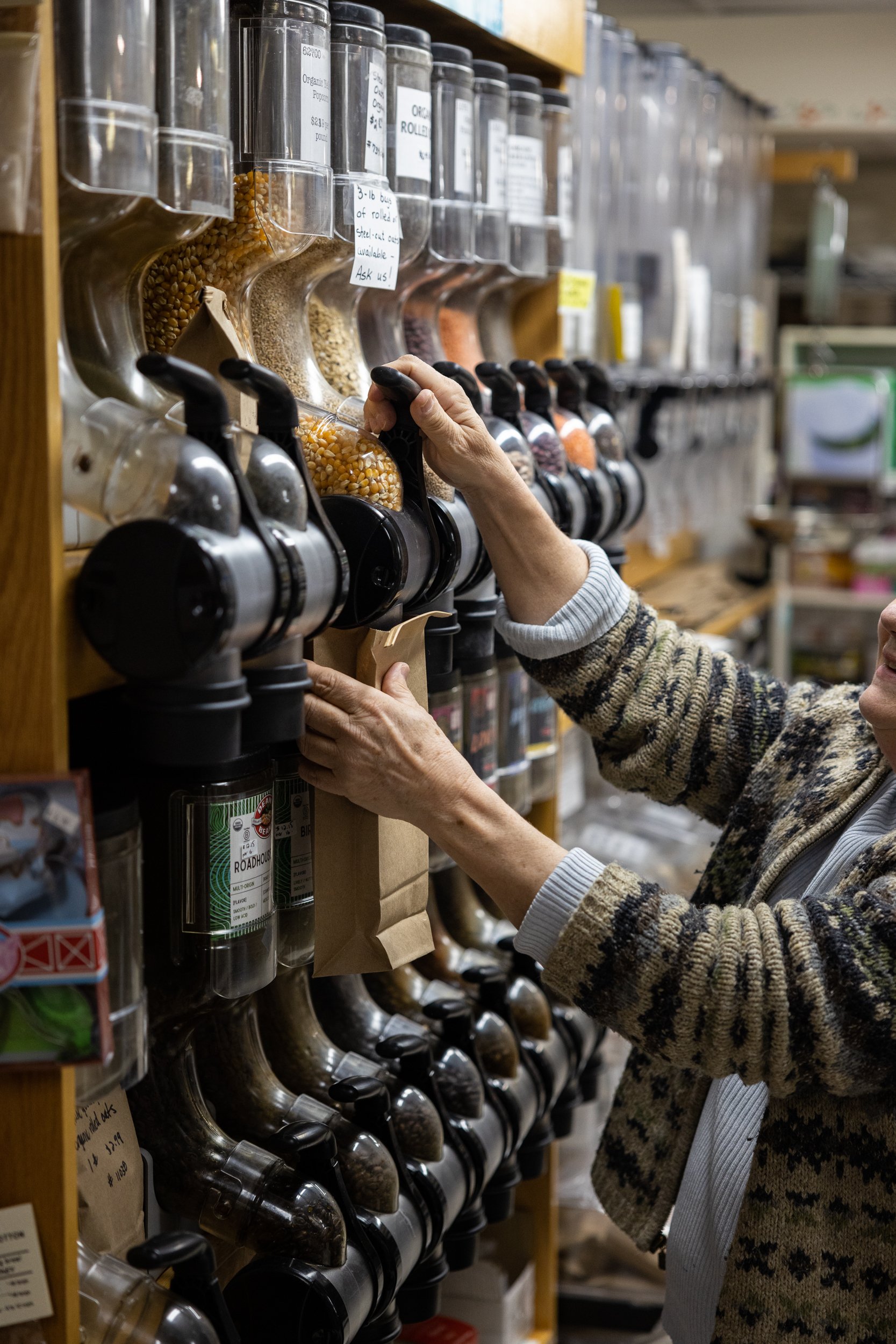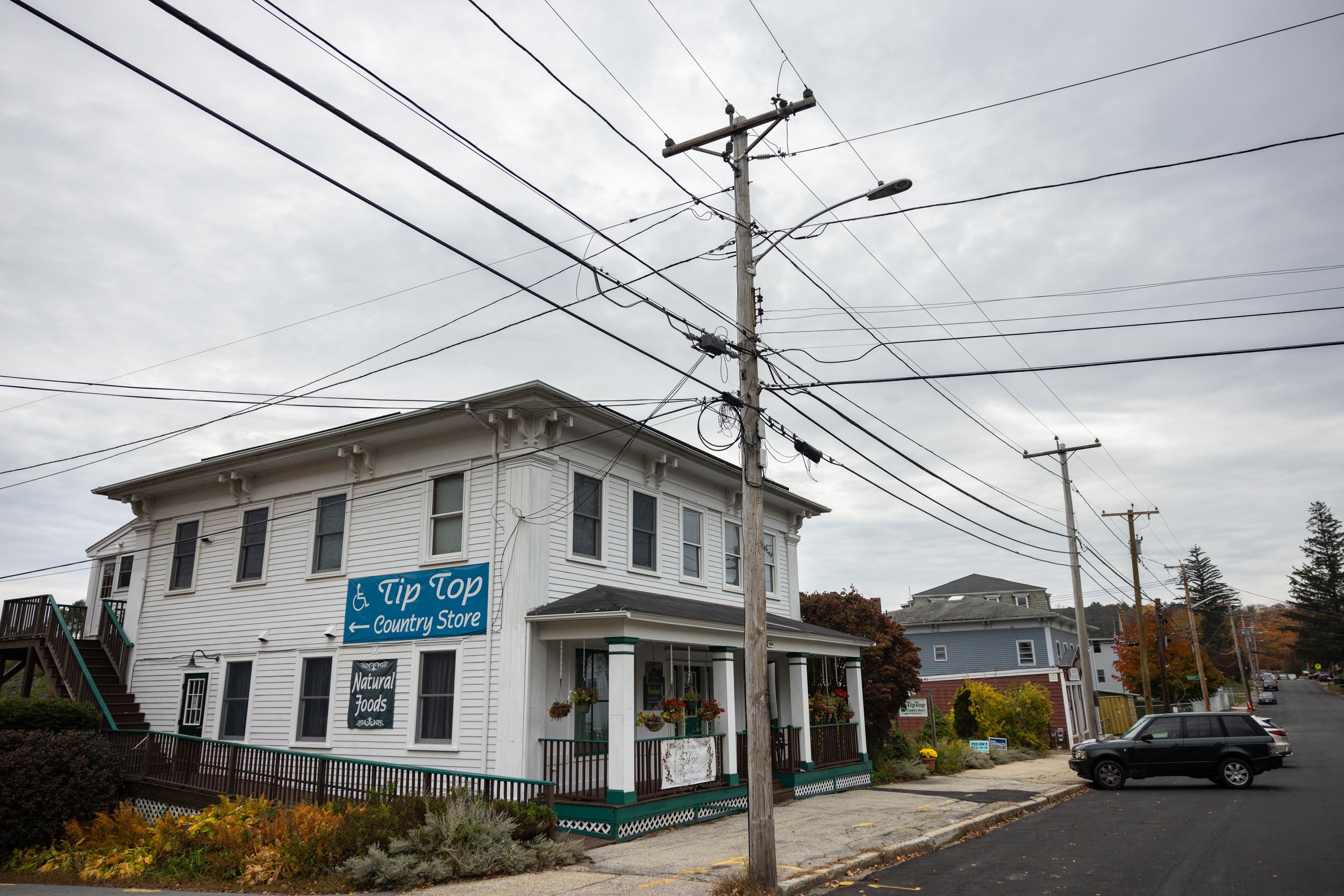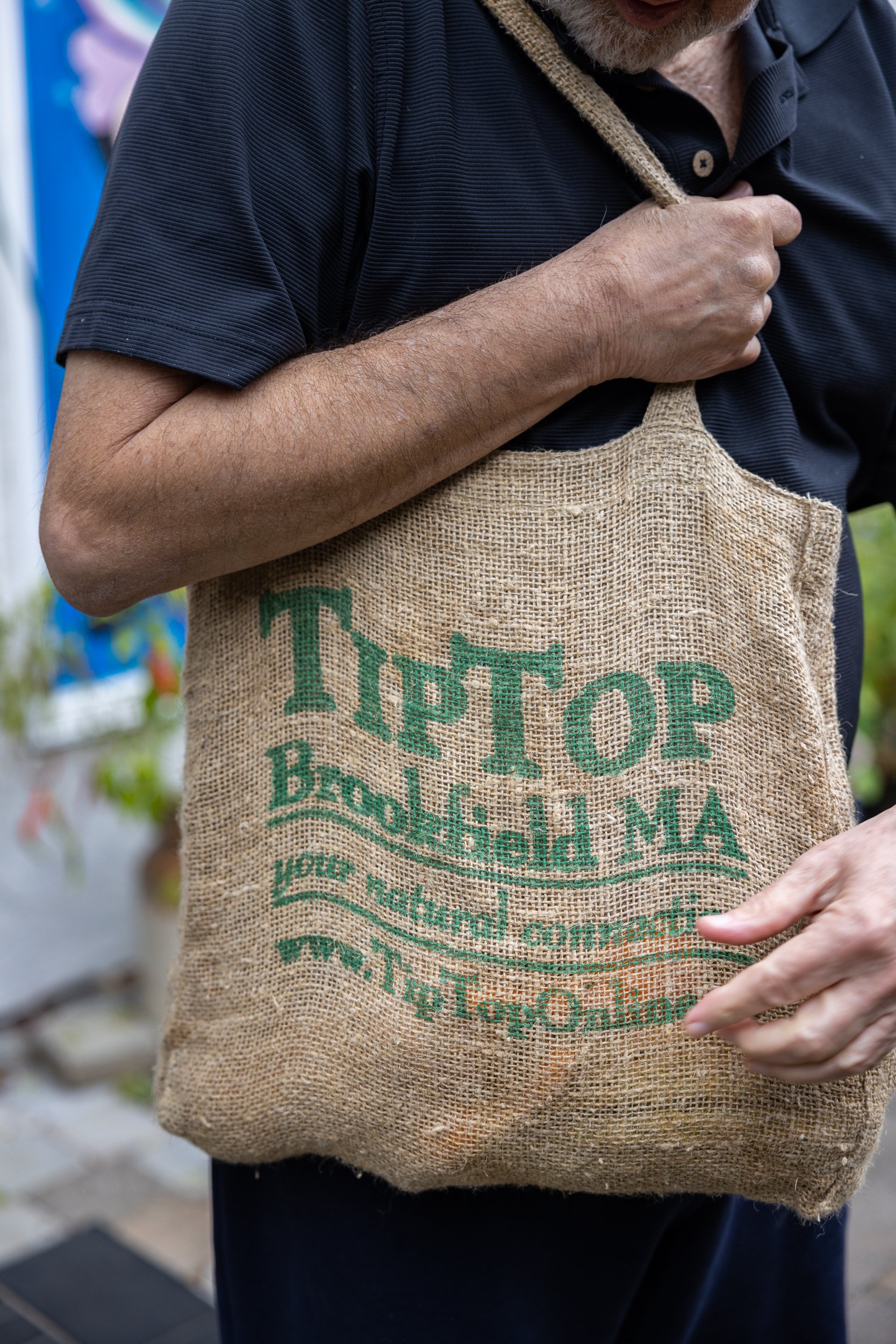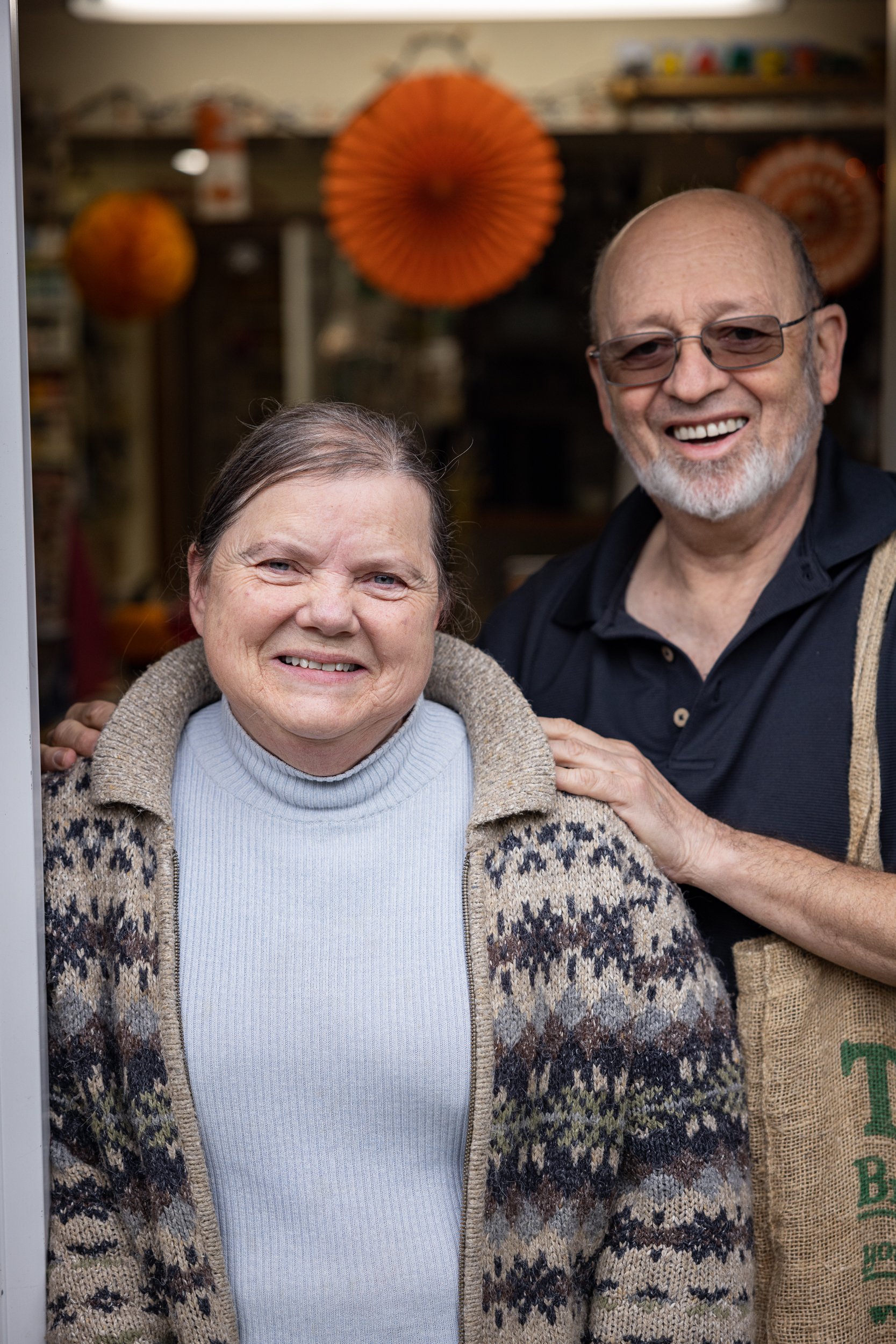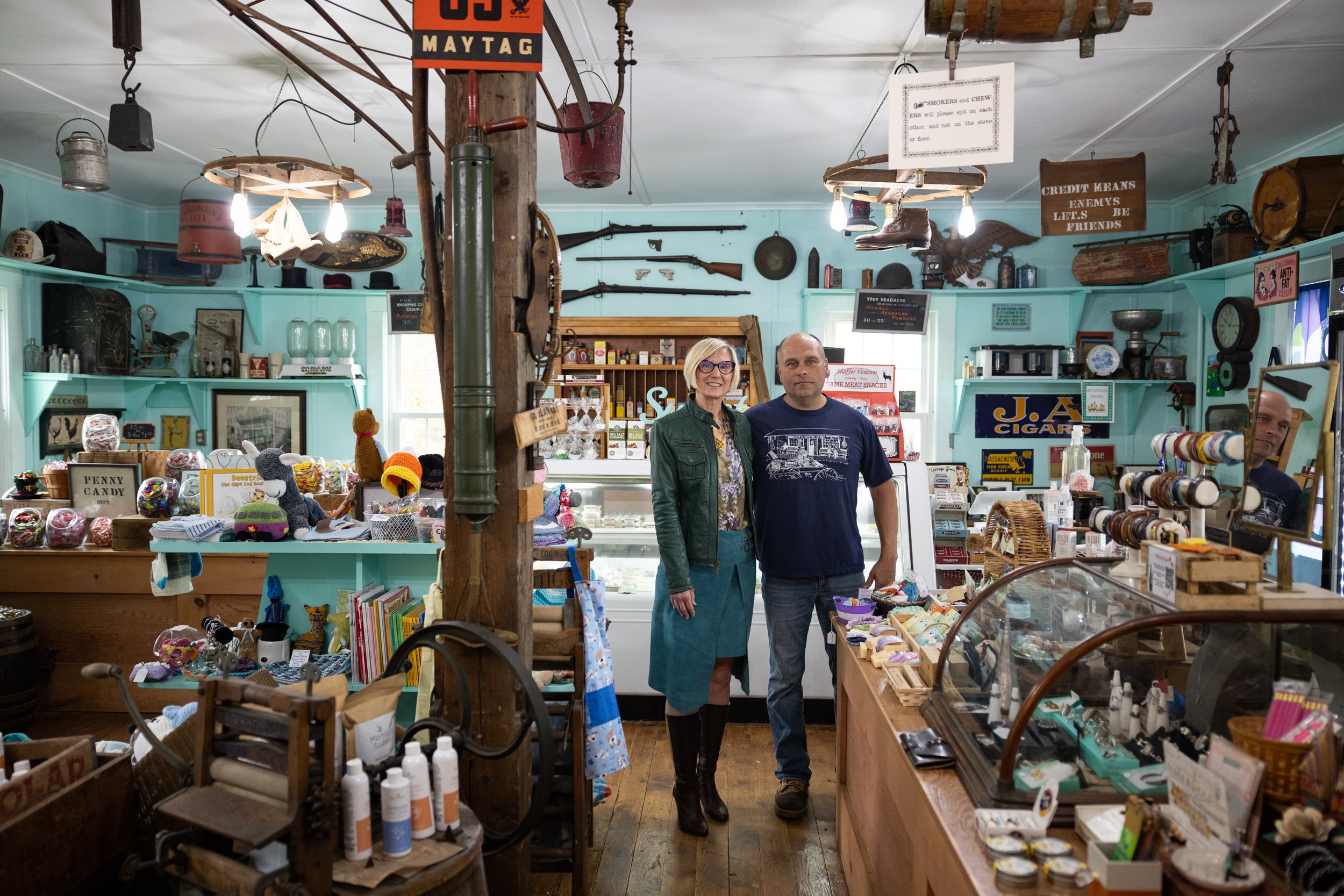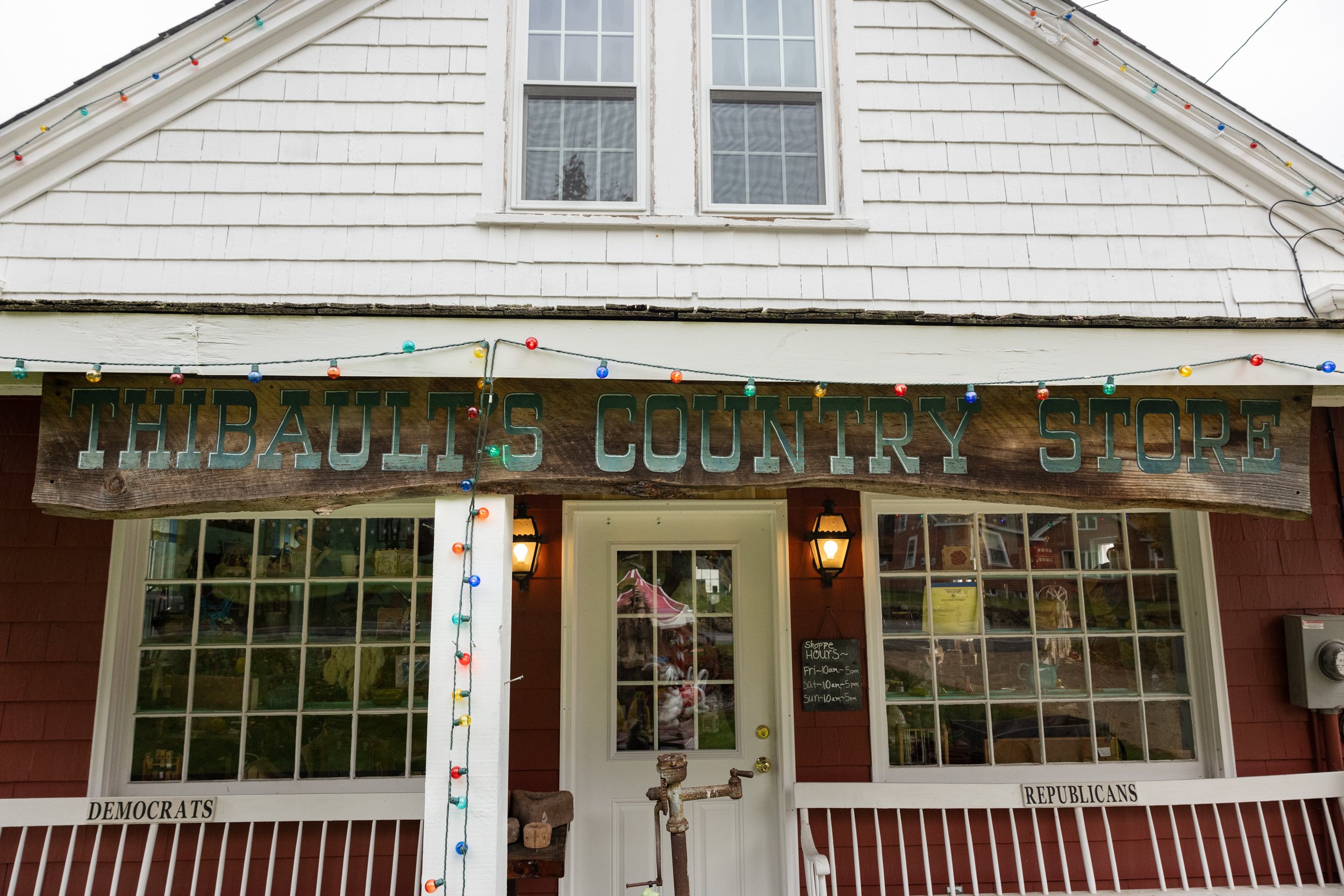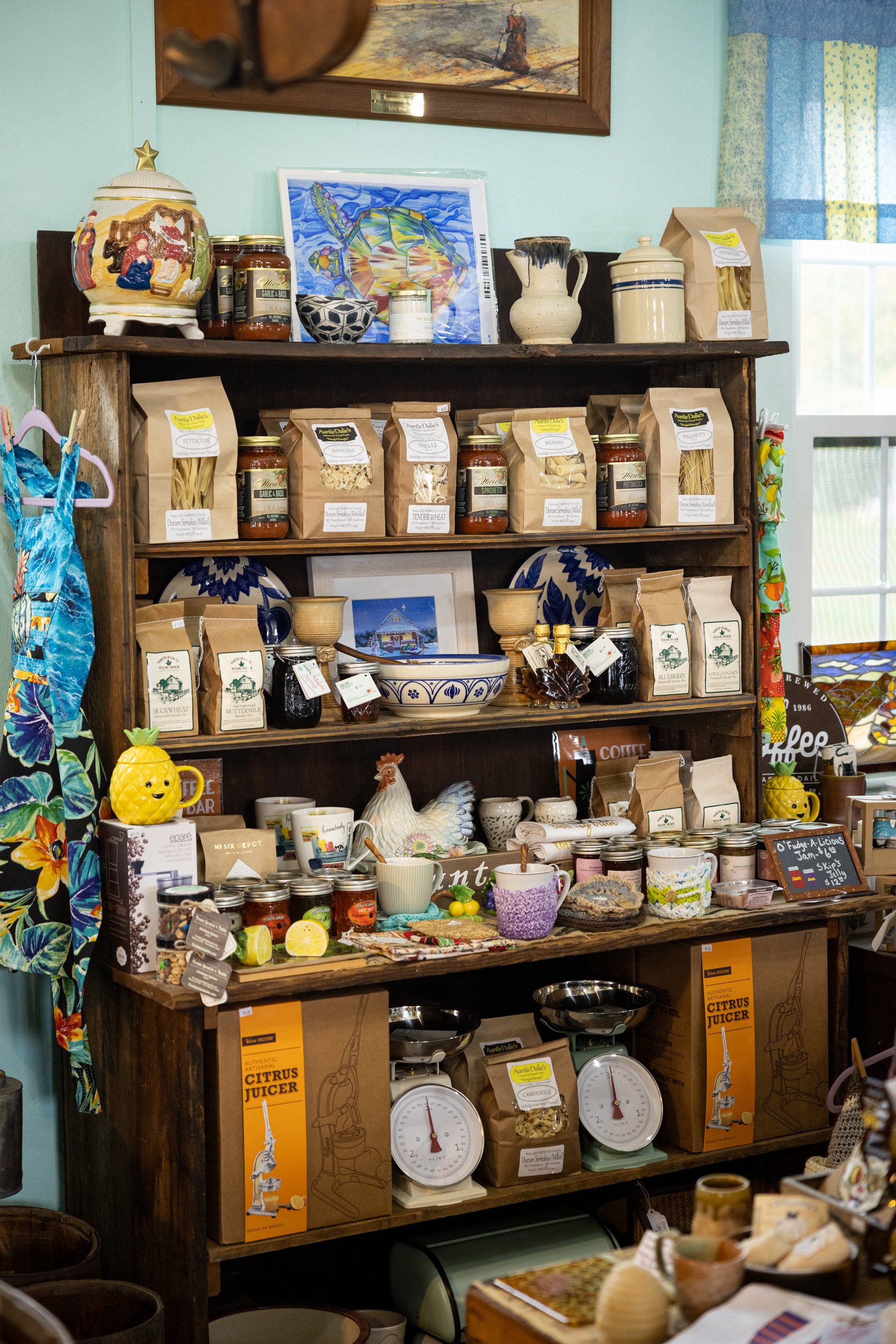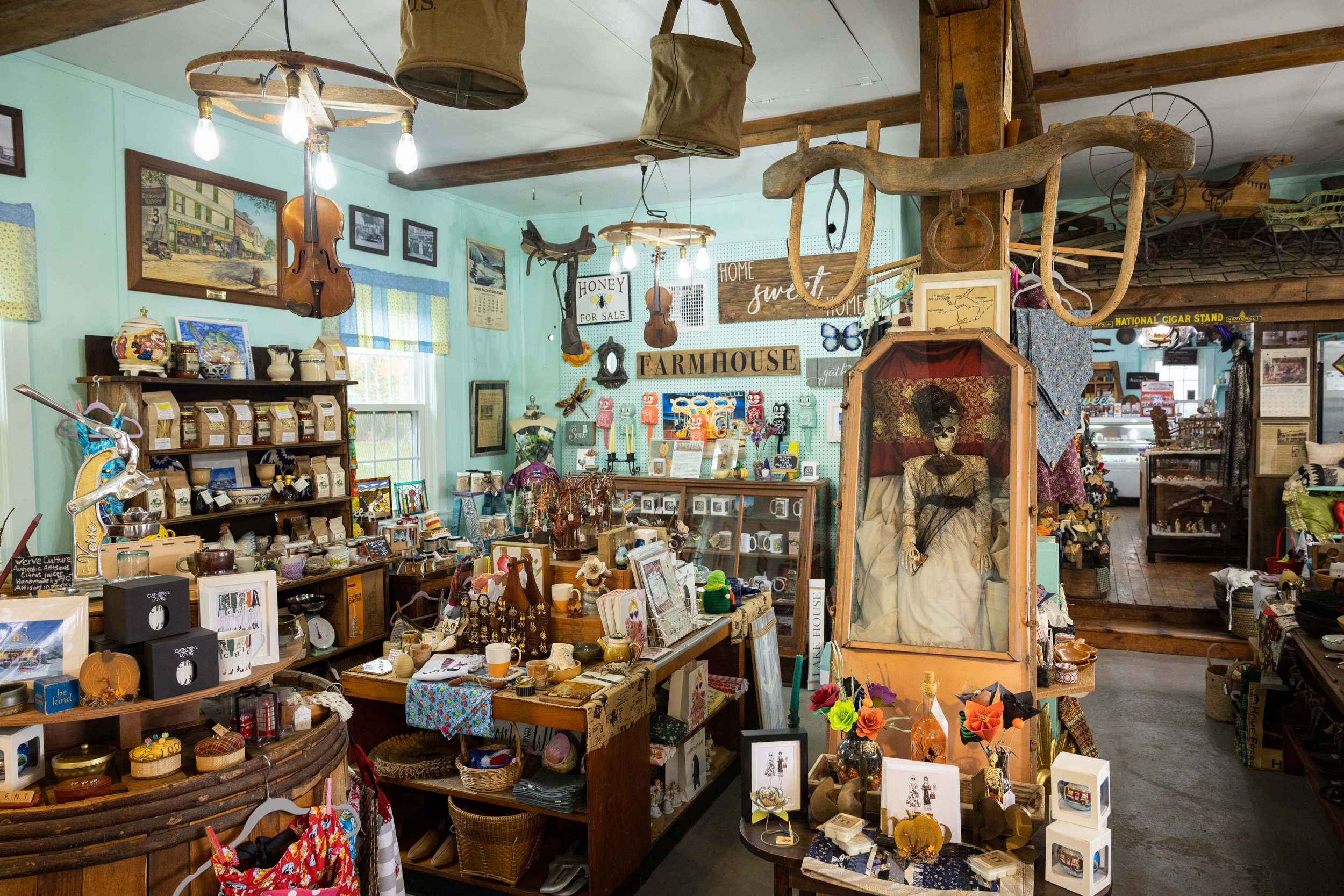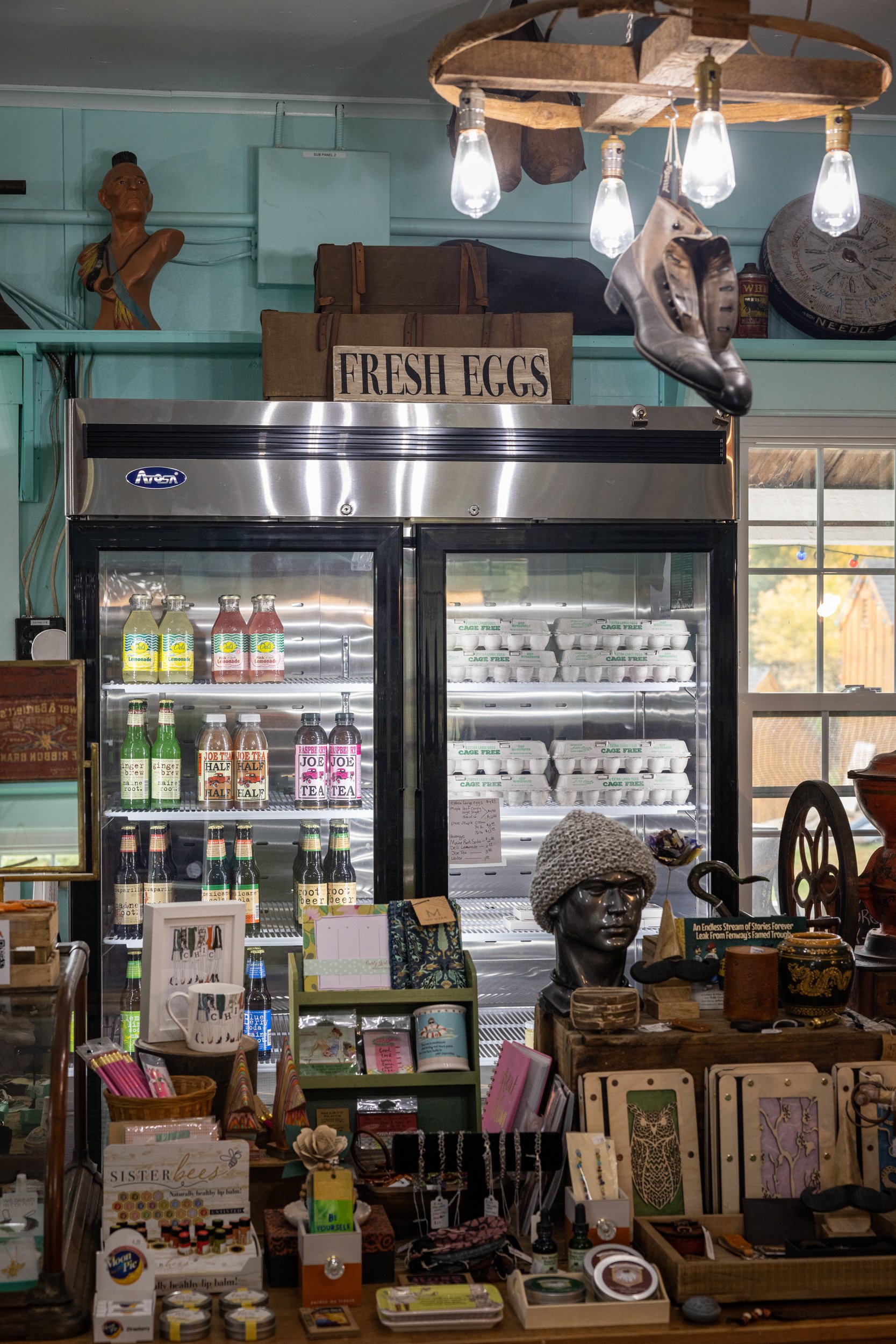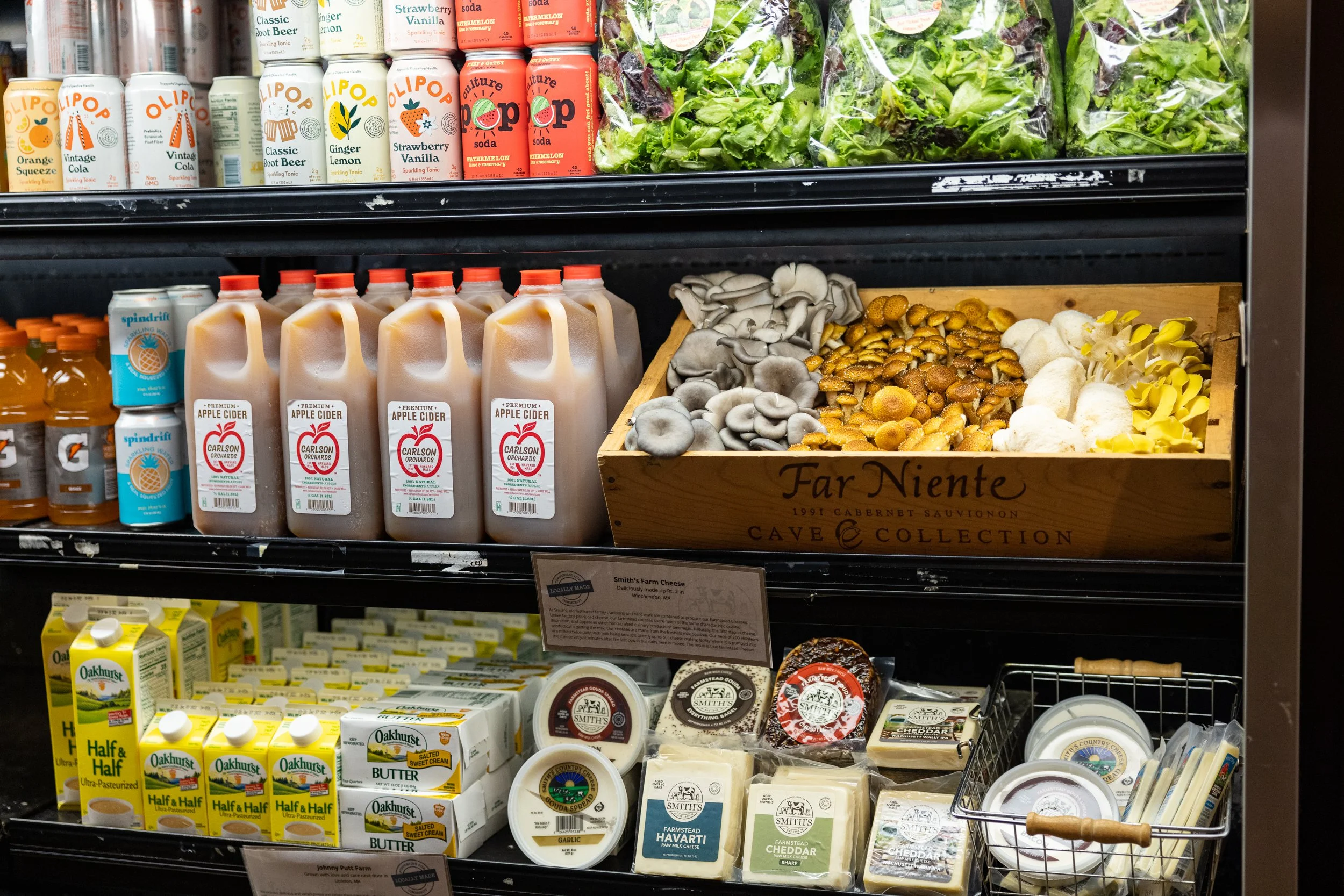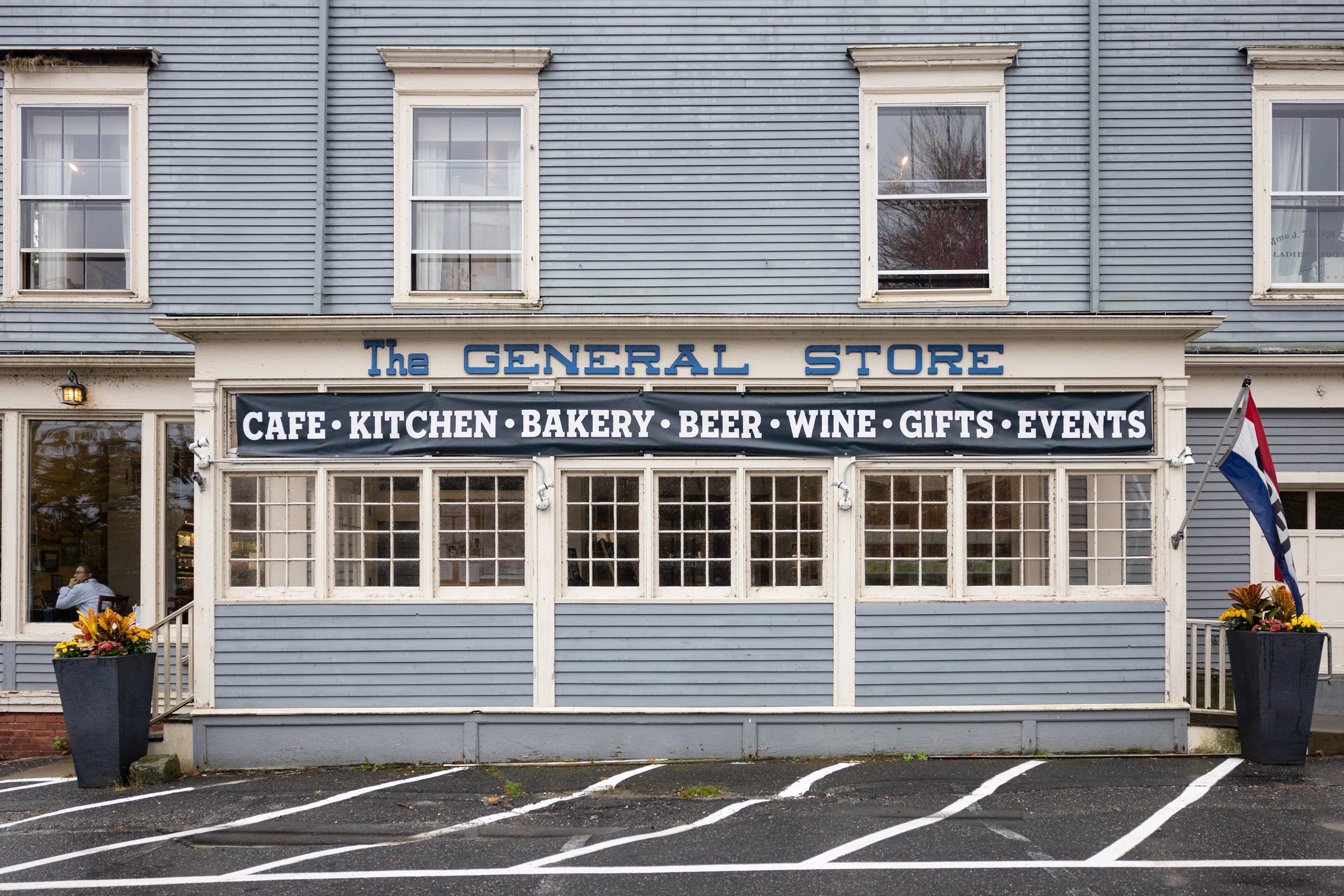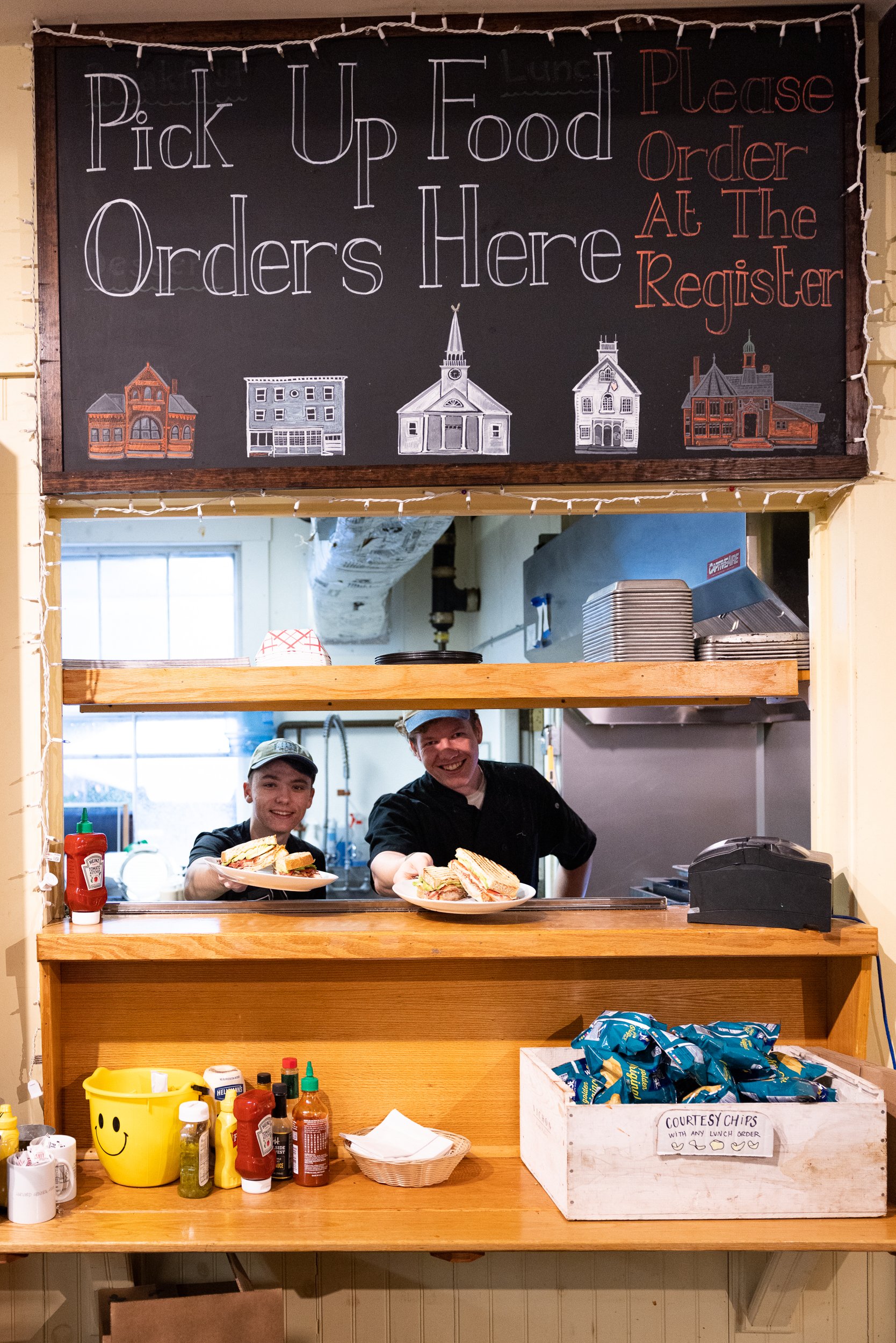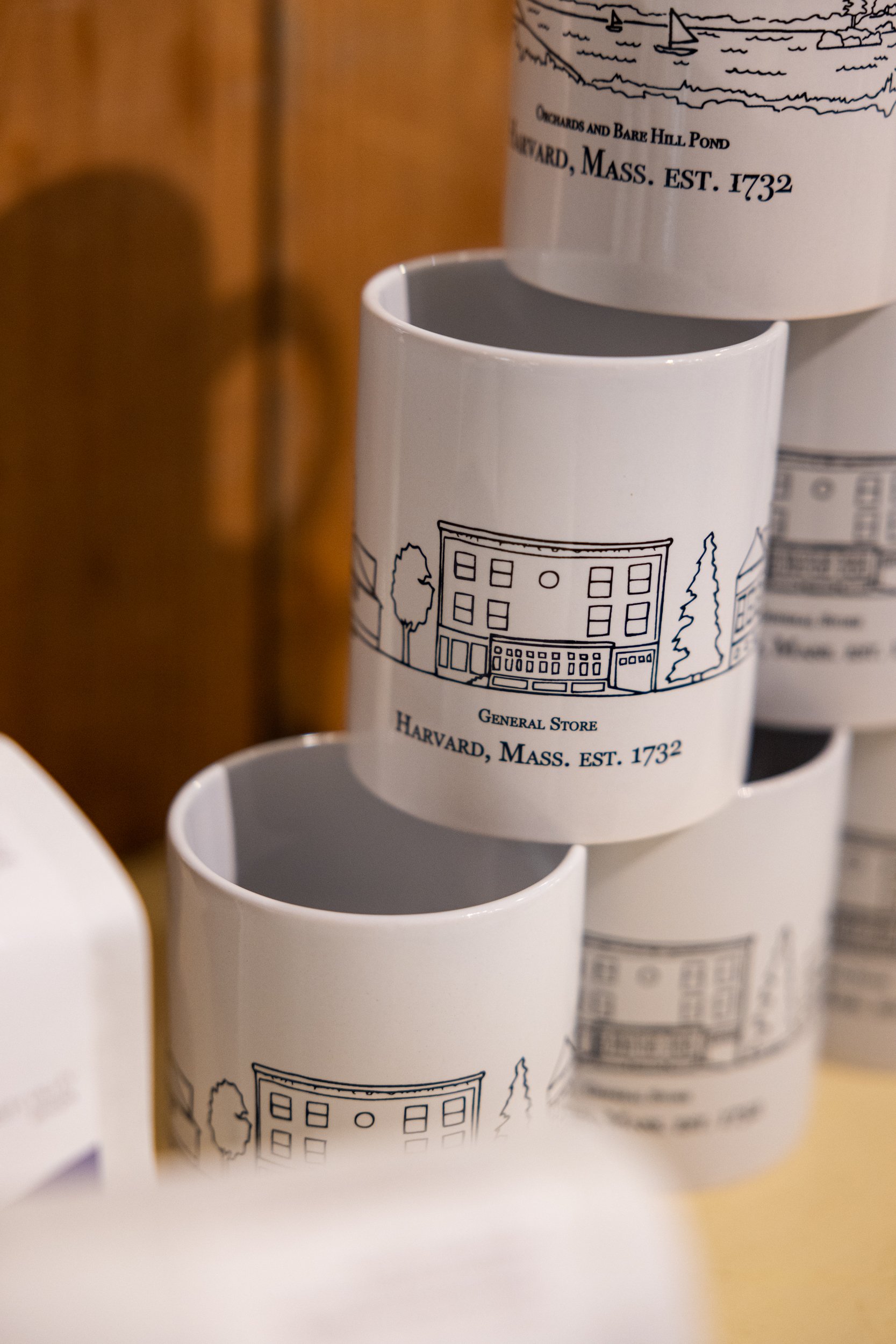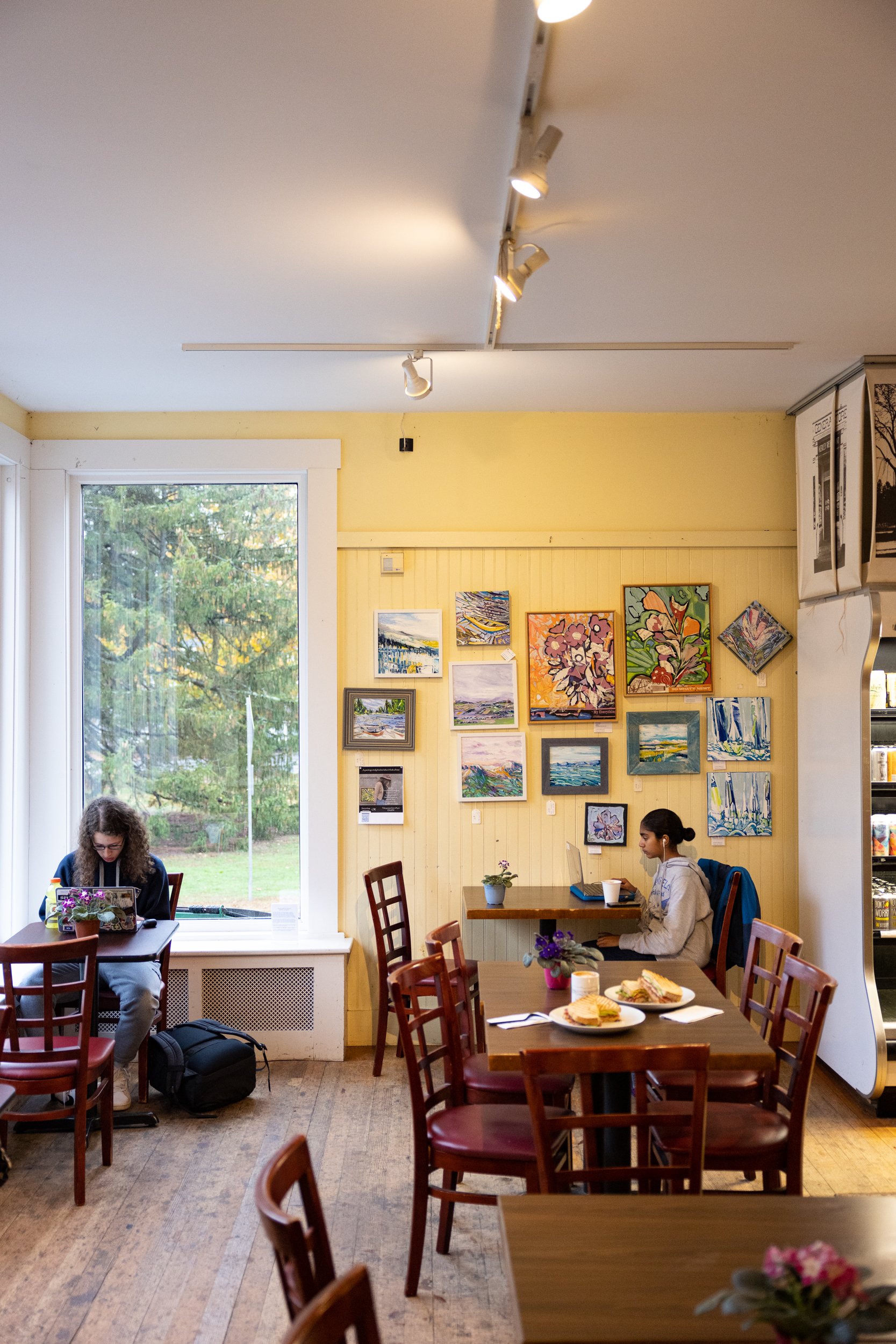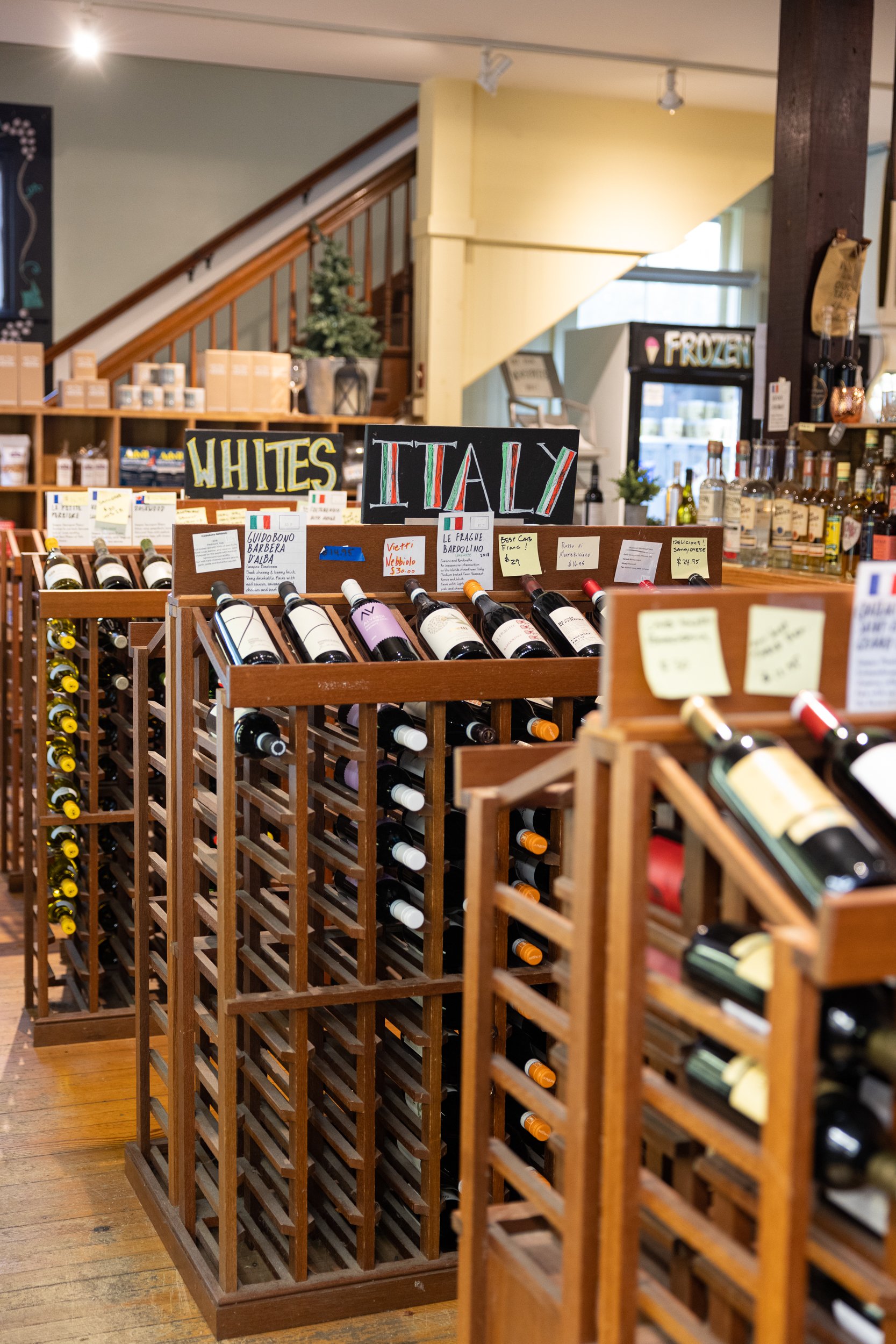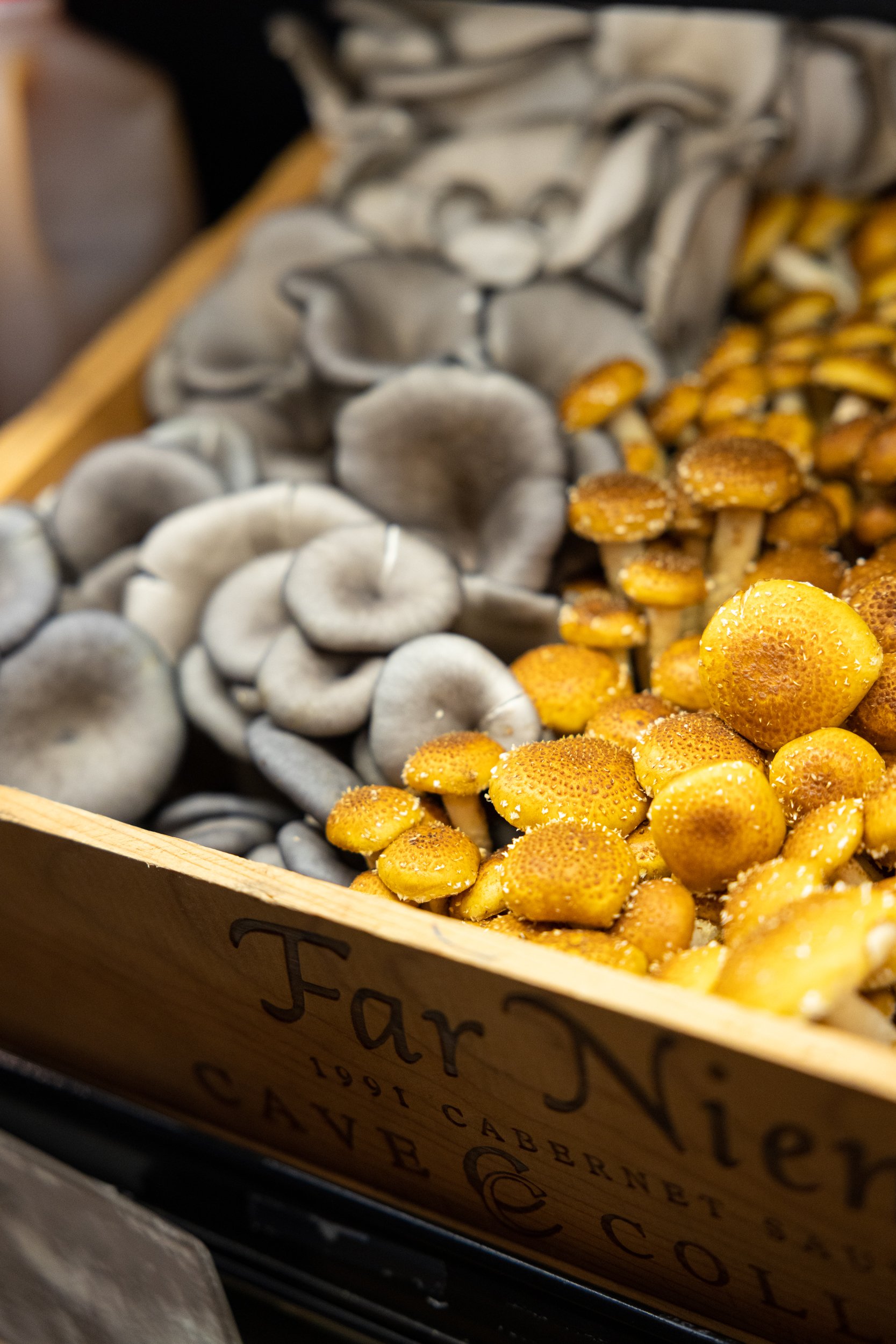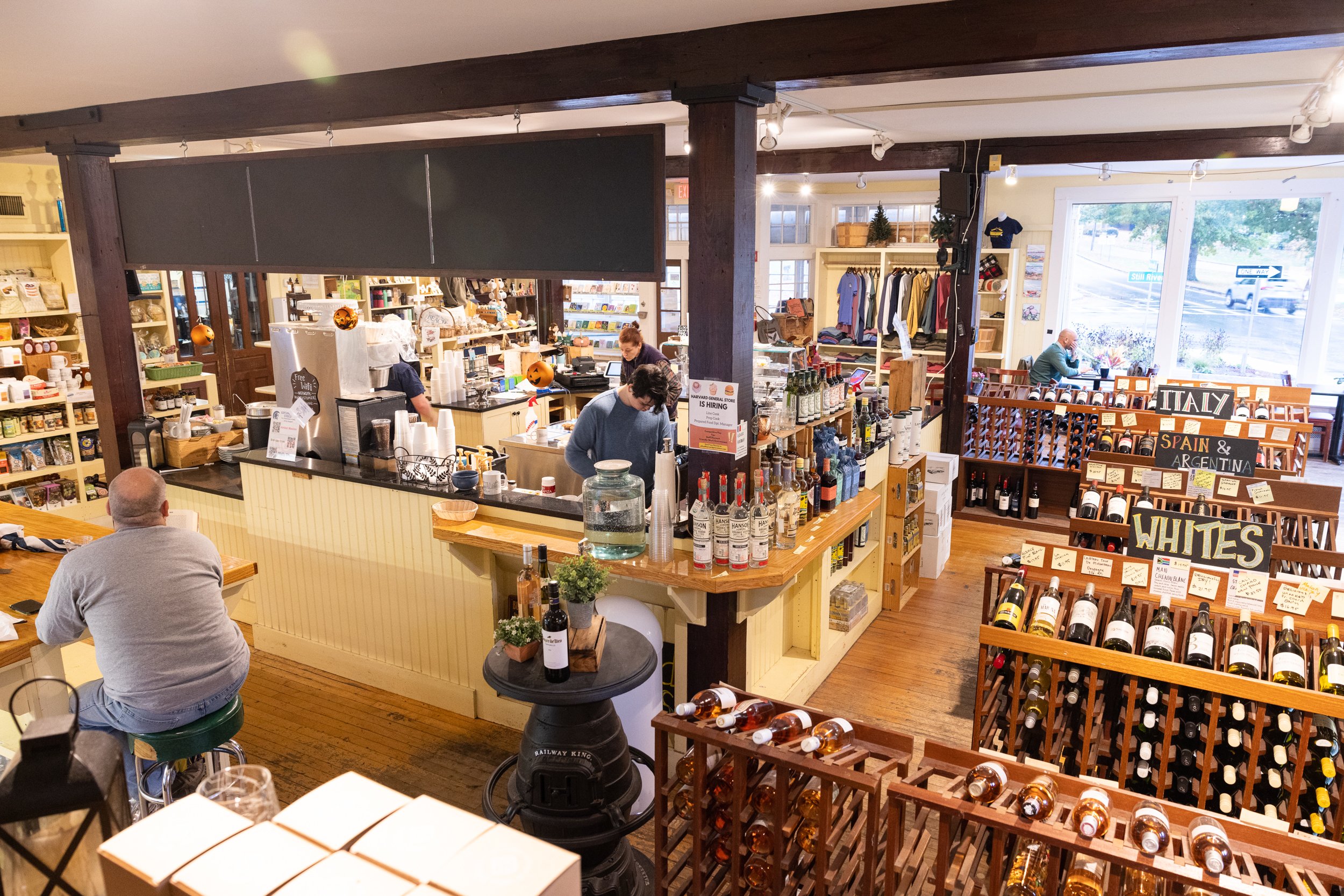Thinking Outside the (Big) Box: Central Mass Loves Its Country Stores—and Preserves Them
The Country Store, Petersham
Photos by Giant Giants
When a town or neighborhood loses a cherished local grocer, the community mourns. Businesses like these can define their communities just as much as the natural landscape or historic landmarks— they give places a sense of identity, of being real. When the COVID-19 pandemic felled so many local businesses all at once, the closures illuminated their importance beyond places to buy dish soap or canned beans; the face-to-face interactions that take place in these shops is essential.
In rural communities, one store often anchors a town— when it disappears, the community founders. The pandemic was just the latest challenge to traditional country stores. First, cars and highways moved commerce to the suburbs. Then supermarkets mushroomed into superstores. Then came the Internet and near-instant delivery of near-everything. It’s been generations since most folks bought everything they needed from a little store in the heart of their town. Over the generations many country stores have closed, others have scraped by, still others have been revived by the communities that declared them essential, even before the pandemic.
Let’s visit a few.
THE COUNTRY STORE, PETERSHAM
Growing up in town, Ari Pugliese would walk behind the counter at the Petersham Country Store and rummage in the register for buffalo nickels. The store owner was “like a second mom,” living upstairs with a bunch of kids. When Pugliese’s mother wanted to know where he was, she’d call the store. A sandwich on the sandwich board was named after his father, a local business owner. “It really is the hub of the community,” says Pugliese. Situated on one of the most picturesque village greens in the state, the store has served the town since 1840.
Since his childhood, the store had cycled through owners. “These old, historic buildings are very difficult to maintain,” says Pugliese, “and it’s a very small community—it’s only 1,200 people and there’s not a lot of money to go around.”
By the time the store closed in 2012, Pugliese had left behind a career in health care on the West Coast to pursue a love of food, opening a vegetarian café and then a successful fine-dining restaurant back home in Worcester County. “I wanted to be more rooted in the community— that’s why I love food, because it really has a way of bringing people together,” he says.
In 2013, through the East Quabbin Land Trust, the community came together and raised $400,000 to purchase and restore the building. When The Country Store reopened in 2013, Pugliese and his wife, Jeanneane, stepped in to run it.
The Petersham community is dedicated to preserving the town’s rural character—more than 80% of the town’s acreage is dedicated conservation land—but a store is an unusual acquisition for a land trust. The store, says Pugliese, completes the circle of the local economy. The farmers need a place to sell their food. The Country Store’s inventory is focused on local and natural products, from ground lamb to ice cider to kindling. During the pandemic, made-from-scratch grab-and-go meals surged in popularity. But the store’s heart is its café, serving breakfast and lunch and hosting a vibrant coffee hour. The store serves locals of all stripes who “know the value of maintaining a store like this and decide to spend their dollars here, as opposed to going into a big-box store. [The store] maintains that place, a central place for information to find out what’s going on. If you’ve been to small rural towns that don’t have stores in the middle, they’re like ghost towns.”
TIP TOP COUNTRY STORE, BROOKFIELD
Brookfield’s Tip Top Country Store is tucked into the basement of an 1860 building next to the town hall—in the bottom of the building. When Sarah Heller and her husband, Rudy, undertook the building’s restoration, they learned of the old Tip Top restaurant upstairs and decided to resurrect the name.
The store grew out of a 1980s co-op, a group of around 70 people associated with Old Sturbridge Village who broke down their wholesale orders in the church around the corner. After a period of dormancy, the Hellers revived the co-op in 1990, then opened the shop in 1994—not as a co-op, but a mom-and-pop business guided by cooperative values, fair trade and local sourcing. “These shared ideals were our guiding principles here,” says Heller. “People, planet and profit. But profit is last." The Hellers live in an apartment upstairs.
Like the original co-op, Tip Top Country Store draws a loyal customer base of “very conscious consumers… interested in healthy, non-processed, local and organic when we can, but we aren’t totally firm on the organic. It’s more a matter of knowing our suppliers and what they’re doing.” Heller sells bulk legumes and local eggs but also Shaker boxes, fair-trade puppets and mittens made by local artisans. Their inventory is guided by the community. “We’re kind of like a crowdsource store,” says Heller. “Almost everything that’s in this store is because the customers requested it at one point or another. I’ve got a rule: If two people request it, I’ll try it.”
THIBEAULT’S COUNTRY STORE, SPENCER
In 1960 when work crews came through to pave the dirt path that ran by the Thibeault family farm, Grace Thibeault made them coffee and sandwiches. “And they told her, ‘Oh, you ought to have a country store here because there’s nothing else out here,’” says owner Jim Ingalls, her grandson. Two years later, their stretch of Route 31 was paved and Thibeault’s Country Store opened its doors.
Ingalls’ great-grandfather bought the property in 1927 and developed a successful poultry business—at its peak, 50,000 chickens were on the property, later adding a feed store at the bottom of the hill that’s still in operation. The tidy red-fronted white building that houses the country store was a hatchery; wood from the incubators was re-purposed to build furniture for the store.
First Grace sold eggs, quickly adding bread and pastry, handmade pottery, bowls and hand-carved utensils, penny candy and ice cream. As the years went on, the store became a tourist destination—the classic New England country store. In the ’80s, the shop’s exterior was featured in a Dunkin’ Donuts calendar. Ingalls’ grandmother ran the store and his grandfather ran the feedstore, Thibeault’s Poultry.
When Grace Thibeault died the store closed for over 20 years; until three years ago the building was used as storage. Today’s Thibeault’s Country Store is a tribute to Ingalls’ grandmother’s vision and hard work. Customers are greeted by artifacts from earlier chapters in the property’s story—a roadside rooster crafted from machine parts, a little midcentury merry-go-round on the lawn, benches marked “Republican” and “Democrat” flanking the front door. With his partner, Doreen Krajewski, Ingalls sells chicken pies and grass-fed local beef, Kit Kat clocks and Italian handbags, and eggs—a mix of old-timey and modern goods aiming to attract locals and tourists, as the shop did in its heyday. The store’s reopening brought the cable show “American Pickers” to Spencer, and a surge of curious customers followed.
“An 80-year-old guy brought his grandkid in here—they went over to that glass case and he said, “When I was your age, I used to ride my bike down here. And this case was full of penny candy,” says Ingalls. Now, penny candy is back in stock.
HARVARD GENERAL STORE
The Harvard General Store was built in 1896, but its foundation is much older. It anchored the town center for “years and years and years before that,” says owner Scott Hayward. “As far as I know, it has always been some kind of general store.” When he moved to town in 1999, a local pharmacist operated a general store in the space with groceries, candy and a pharmacy, with a photography studio upstairs. Hayward’s kids grew up in the shop. When the pharmacist died, his family briefly ran the business, then it closed for five years. It was missed.
In 2012 Hayward bought the store from the London couple who renovated the space and ran it in the intervening years. He maintained a similar mix of café, retail food and wine and gifts, with a focus on keeping prices at a level the community could access. “When I bought it,” he says, “I made a concerted effort to try and let people know that it was a place for everybody. You know, it was a place for conservatives to come, it was a place for liberals to come, and everybody was welcome. It is the secular meeting place in town—you know, in a sense there aren’t any other meeting places except religious ones.”
Before the pandemic, a group of conservative elders gathered for a men’s group on Tuesday mornings, while a “super liberal” group sipped coffee at the next table over. “I think that somewhat mended fences amongst these different groups because they had a place in common. In a way, I sell community; that’s what it is, and the milk and the sandwiches and all that kind of stuff is great, too.”
During the pandemic, curbside pickup was wildly popular with their customers. Hayward’s sons came home to wait out the worst of it. One son is a chef, and they set up a patio for outdoor dining. The community turned out. The café is the heart of the store; it generates the traffic, but gifts and groceries are the most profitable.
“In retail, conventional wisdom is that you can’t be all things to all people, but I think it is essential that we be all things. It just turns conventional wisdom on its head.”
It’s a lot to ask people in rural communities—communities that are often struggling—to spend more money at a country store when there’s a big-box bargain on the edge of town and delivery a click away, but in many cases it’s the community asking the store to keep going, to provide a gathering place and a snack. These proprietors are stewards of community, keepers of tradition and rural life.
Essential workers, keeping places real.
petershamstore.com
tiptoponline.us
thibaults-country-store.business.site
harvardgeneralstore.com
This story appeared in the Spring 2023 issue.


